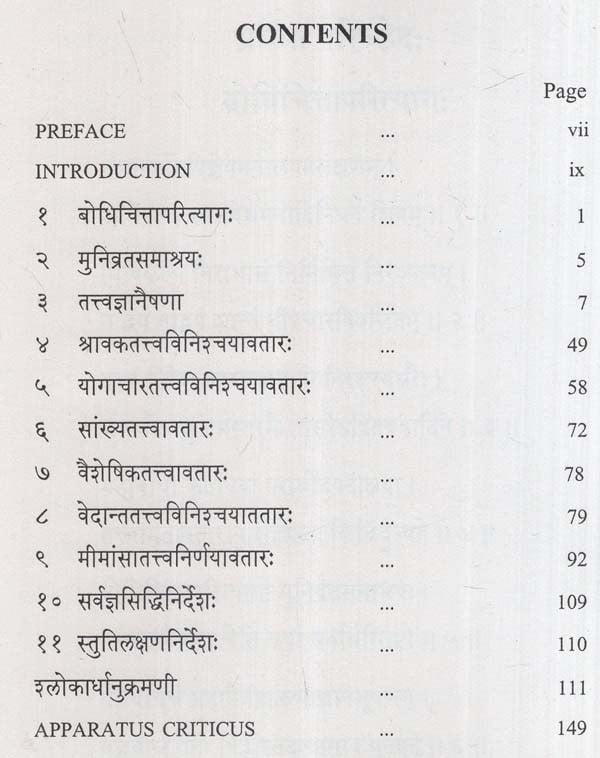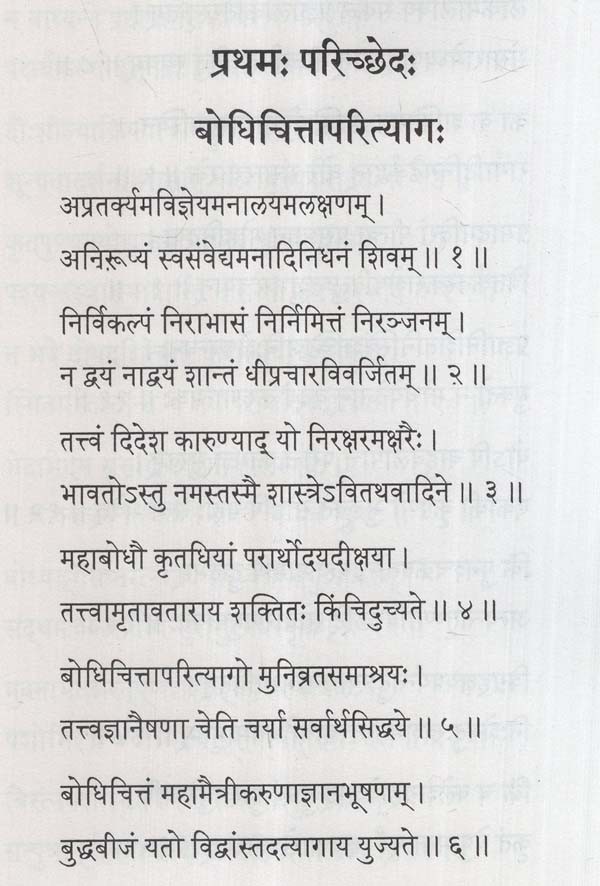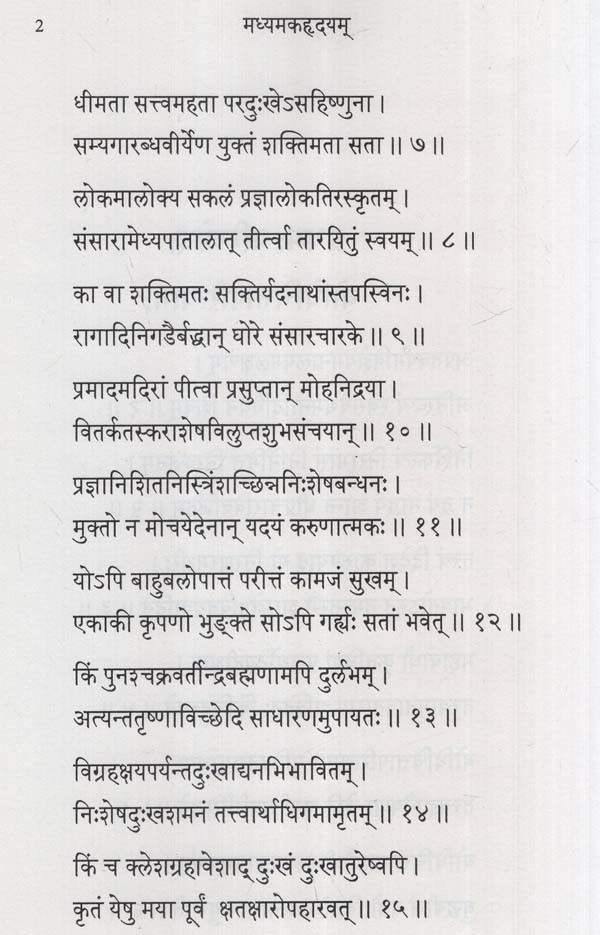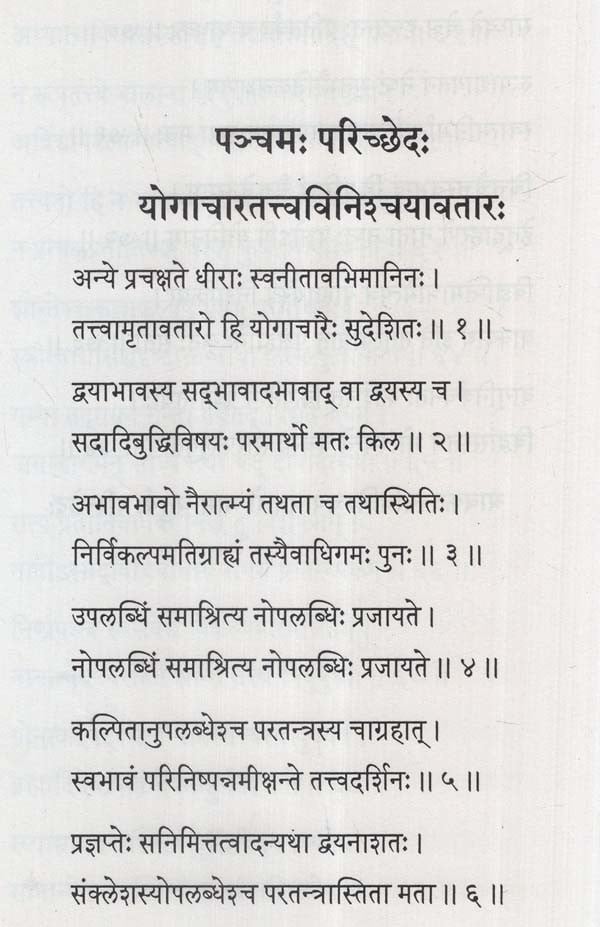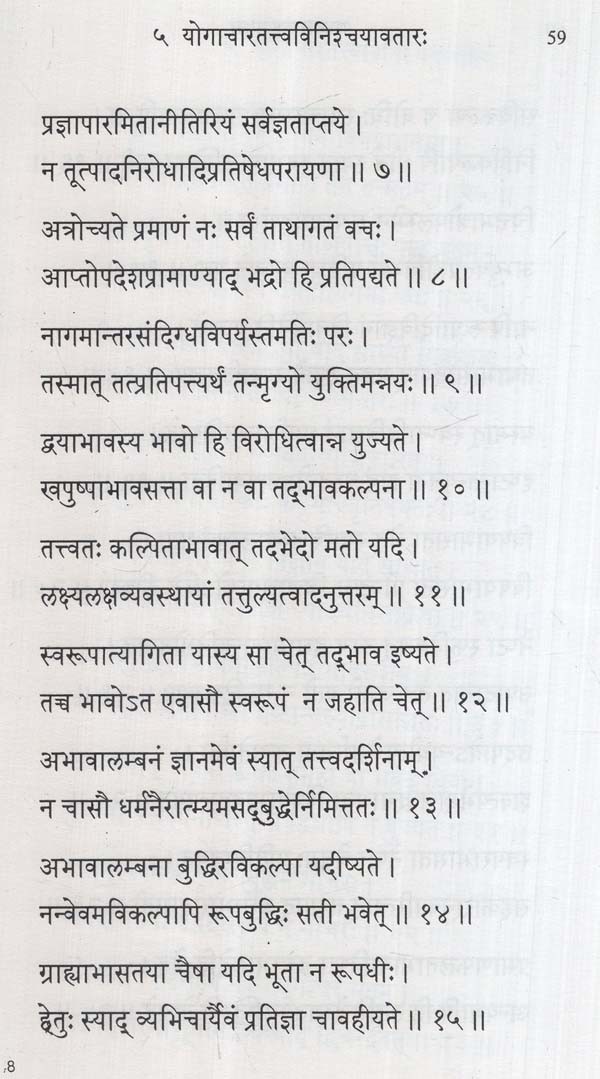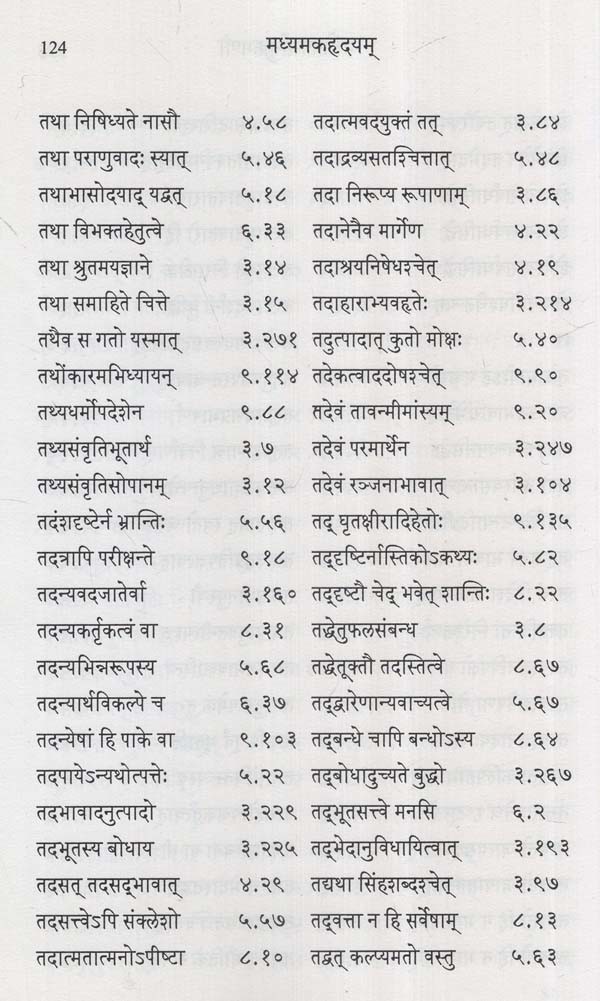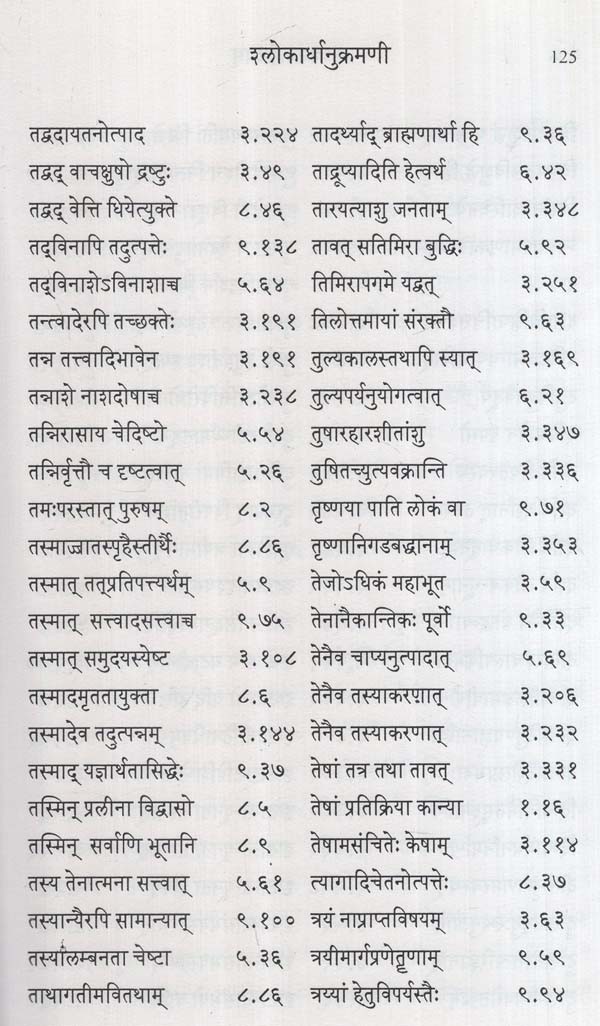About the Book Bhavya's celebrated Madhyamaka hrdaya, critically edited by Professor Christian Lindtner, is published here fully for the first time in Devanagari script, together with a detailed English introduction and critical notes. His edition in Roman transliteration and English translation will be published later from Europe. The text in eleven chapters is similar to Sarvamatasamgraha criticizing all other schools of thought and defending the Madhyamaka School.
Preface I am glad that Bhavya's Madhyamakahṛdaya, critically edited by Christian Lindtner on the basis of all available manuscripts and secondary sources, translations in Tibetan, Päli, Chinese etc., to the extent possible, is now being published in the Adyar Library Series fully in Devanagari script for the first time. In May 1999 I had the pleasure of staying with Lindtner at Copenhagen for more than a week and reading through his critical edition of the text in Roman transliteration and discussing the problem of identifying the ur-text. At my request he gave me a copy of his critical edition (in Roman script) together with his detailed introduction, variant readings and notes. Radha Burnier, the International President of the Theosophical Society, readily agreed to my suggestion to include it in the Adyar Library Series. T.M. Ramani transliterated the text to the Devanagari script and prepared the half verse index. The typesetting in Sanskrit was also done by her. I have also seen the proofs; so has Lindtner. His English translation has not been included in this edition. It is likely to be published from Europe.
Introduction The name of our author is handed down in variant forms. Candrakirti, in his Prasannapada, based on rather late Sanskrit MSS. from Nepal, calls him Bhava-viveka, but the corresponding Tibetan trans lation is Legs Idan 'byed, which presupposes Bhāvi viveka rather than Bhavaviveka. Legs Idan byed (or 'byed) is also found in the colophons to two other works by our author, Prajñāpradipa and Madhyama kārthasamgraha. The commentator on Prajñāpradipa, Avalokitavrata, presupposes the same form, namely, Bhāvi-viveka. Elsewhere, Candrakirti uses the form Bhāvi(n), which would seem to be a short form of Bhavi-viveka. Considering that a and i in these manuscripts are often confounded, the evidence for Bhāva viveka is, therefore, as opposed to Bhavi-viveka, poorly supported.
Various Chinese transliterations and translations point to the form Bha-viveka. Kamalaśīla knows Bha viveka as well as Bhavya. The Mahāvyutpatti has Bhavya (Tib. sKal Idan, Mong. Tegüs qubitu - Clear distinction).
**Contents and Sample Pages**

